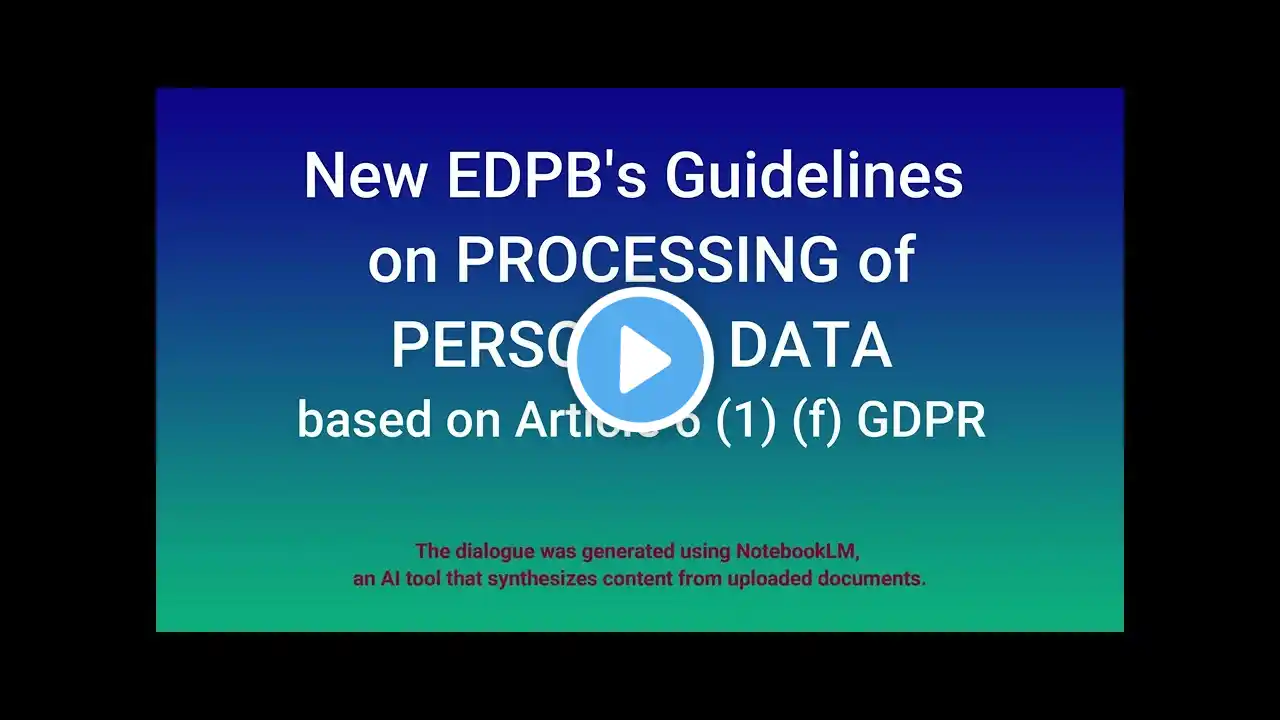
Ep. 2. Legitimate Interest Under the GDPR in Light of the New EDPB Guidelines.
This podcast explores legitimate interest as a legal basis for processing personal data under Article 6(1)(f) of the GDPR, in light of the new EDPB Guidelines published for consultation on 8 October 2024. It analyzes the three cumulative conditions that controllers must meet: ○The pursuit of a legitimate interest that is: ■ Lawful, meaning it is not contrary to EU or Member State law. ■ Clearly and precisely articulated. ■ Real and present, not speculative or hypothetical. ○ The necessity to process personal data, interpreted in light of the data minimization principle. ○ The condition that data subjects' interests or fundamental rights and freedoms do not override the controller's legitimate interests. ● It explains the necessity assessment, emphasizing that necessity should be interpreted in light of the data minimization principle. Controllers must ensure that the legitimate interests cannot be achieved by other less intrusive means. ● It examines how to conduct a balancing assessment, weighing the impact of the processing on the rights and freedoms of data subjects against the legitimate interest of the controller, using the key factors outlined in the Guidelines. This assessment should be done before the processing takes place. Some of the key factors include: ○ The nature of the personal data, including whether it involves sensitive data. ○ The context of the processing, including the scale, data subject status, accessibility of the data, and whether the data subject is a child. ○ The reasonable expectations of the data subject, which may be influenced by factors such as the type of relationship with the controller and the nature of the service. ○ The possibility of further mitigating measures, going beyond the controller's obligations under the GDPR. ● It provides practical examples based on the new EDPB Guidelines, such as fraud prevention, direct marketing, and information security. ● Finally, it discusses the relationship between Article 6(1)(f) and data subject rights, offering practical guidance on balancing these rights with legitimate interests. This includes the rights to: ○ Object to the processing, where the controller must demonstrate compelling legitimate grounds to override the objection. ○ Erasure of their data, which is closely linked to the right to object. ○ Restrict processing, particularly pending the verification of legitimate grounds following an objection. The dialogue in this episode was generated using NotebookLM.